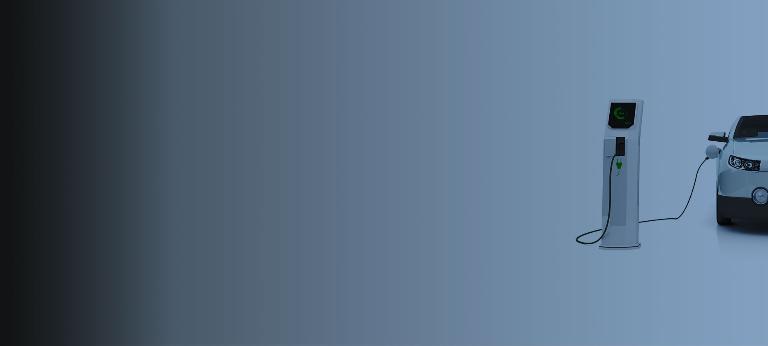Integrated Fuels and Vehicles Roadmap 2030+
![{[downloads[language].preview]}](https://www.rolandberger.com/publications/publication_image/roland_berger_integrated_fuels_and_vehicles_roadmap_to_2030_v2_20160428_1_download_preview.png)
This exclusive study explores possible GHG abatement measures in the road transport sector and supporting policy elements that would deliver sustainable decarbonization efforts.


If the current regulations were extended to 2030, the road transport sector in the European Union could significantly reduce well-to-wheel greenhouse gas (GHG) emissions from 1,100 Mton (today) to 862 Mton (2030) and reduce emissions to levels targeted by the European Commission (-30% in 2030 vs. 2005). Increasing penetration of optimized internal combustion engines in the fleet could be the major contributor to this reduction. Bringing optimized engines as well as alternative fuel and vehicle technologies to the market is a significant challenge for the oil and auto industry and could account for EUR 380-390 bn of cumulated incremental powertrain costs from 2010 to 2030. These are some of the major findings of an evaluation of fuel and vehicle technologies Roland Berger was commissioned to conduct by a coalition of fuel suppliers and automotive companies* with a view to identifying an Integrated Fuels and Vehicles Roadmap to 2030+ to identify GHG abatement options at the lowest cost to society.
"The EU's current regulatory framework for road transport decarbonization needs to be updated for the post-2020 period in order to create certainty for investment in low-carbon vehicles and fuels," explained Dr. Thomas Schlick, Partner at Roland Berger. The Roland Berger study is therefore designed to develop an objective view of possible measures for GHG abatement and at the same time provides an integrated roadmap taking into account the feasibility of all fuel and vehicle technologies along with infrastructure and the required policy framework beyond 2020.
*The Auto Fuel Coalition comprises BMW, Daimler, Honda, NEOT/St1, Neste, OMV, Shell, Toyota and Volkswagen.
Further cost-effective GHG abatement potential through 2030: The Roland Berger research found that further cost-efficient GHG abatement potential exists to meet the 2030 reduction challenge via greater market penetration of hybridized powertrains (18 Mton CO2 emissions by 2030) as well as the use of fuels containing a higher proportion of advanced biofuels (15 Mton CO2 emissions by 2030). Commercial vehicles hold further potential for GHG abatement through increasing use of biofuels and higher gross vehicle weights as well as aerodynamically more efficient trucks. "These technologies are not yet capitalizing on their full GHG emission reduction potential in terms of deployment under the current regulatory framework and can come at a cost of below 100 €/ton CO2 abated. The push that these technologies are being given by vehicle manufacturers and fuel producers needs to be complemented by a stronger market pull on the part of customers," commented Dr. Schlick.
To promote the deployment of cost-efficient technologies post-2020 the Roland Berger experts suggest a policy mix of financial instruments and regulations as well as improved customer information. These include tax advantages for advanced biofuel components and introducing a CO2 based vehicle taxation component. To increase the transparency of the benefits made possible by hybridized vehicles, the experts also suggest extending the current vehicle efficiency labeling to include additional information on cost savings.
Supporting the transition to alternative energies 2030 and beyond: "The benefits of the current regulatory framework leading to the introduction of low-emission and zero-emission vehicle and fuel technologies should be built upon in future policy considerations as these represent one of the pathways to zero carbon emissions," said Walter Pfeiffer, Partner at Roland Berger. Despite expected cost improvements in alternative technologies such as electric cars, their share of sales will remain relatively limited in the period through 2030 under the current policy framework according to the findings of the Roland Berger evaluation. Nonetheless, the experts also believe that non-technical measures could encourage all drivers to reduce emissions.
Cost-effective decarbonization through stronger usage of market based mechanisms for transport fuels: Roland Berger experts identified that in the longer term, market based mechanisms are an option as a complement to vehicle CO2 standards, renewable fuels and infrastructure policies to enable the generation of funds for member states to support new ultra low carbon vehicle and fuel technologies. In the longer term these mechanisms could become the primary GHG reduction policy.

![{[downloads[language].preview]}](https://www.rolandberger.com/publications/publication_image/roland_berger_integrated_fuels_and_vehicles_roadmap_to_2030_v2_20160428_1_download_preview.png)
This exclusive study explores possible GHG abatement measures in the road transport sector and supporting policy elements that would deliver sustainable decarbonization efforts.